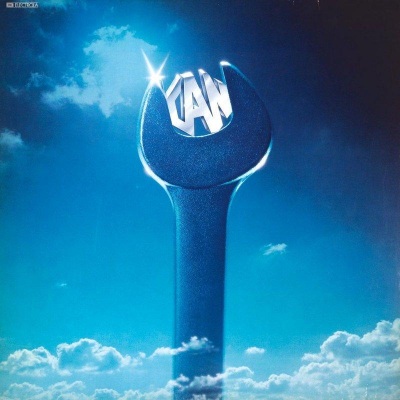
Can
by Mike DeGagne1979's Can release (later entitled Inner Space) signified an end to the band's bewildering experimental efforts and atmospheric free-for-alls. By this time, Can had worn out their avant-garde style and electronic psychedelia, and with Holger Czukay's credits reading as editor rather than musician, the decline was somewhat incontrovertible. The hiring of percussionist Reebop Kwaku Baah and bass player Rosko Gee two years prior, both of Traffic fame, made the situation a little better, but not enough to rekindle Can's uniquely flavored sound of old. The two opening tracks, "All Gates Open" and "Safe," are straight-ahead pieces, with only fragments of effects and decorative devices aiding Michael Karoli's vocals, but both songs do employ some avid keyboard inundations from Irmin Schmidt. With recognizable guitar riffs taking the place of what used to be outpourings of distortion and rumbling feedback, Can takes on a milder, calmer tone the whole album through. "Ethnological Forgery Series No. 99" is the album's most attractive cut, which is actually an electronic creation of "Can Can," implementing overruns of blurry guitar and sharp synthesizer in order to create the traditional melody. The three minutes of "Can Be" is pure synth and percussion...simple-sounding and far from baffling. Can shows numerous signs that the band was ready to pack it in, and not long after the release of the album, they did. With Czukay and other members departing for solo careers, Can was the group's last collaboration. They re-formed ten years later for Rite Time, but this proved disappointing as well.
